
RSC Applied Interfaces has published its first articles which can be read for free here. To celebrate publishing our first articles, we asked some of our authors to discuss their work in more detail.
In this post, we hear from Miss Pranoti Patil and Dr Sushilkumar Jadhav from Shivaji University Kolhapur, India, as they discuss their recently published article entitled ‘Manganese dioxide (MnO2) and biomass-derived carbon-based electroactive composite materials for supercapacitor applications’.
Discover the full article here
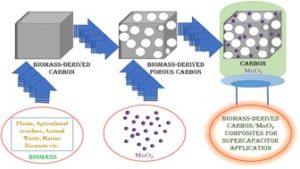 Manganese dioxide (MnO2) and biomass-derived carbon-based electroactive composite materials for supercapacitor applications
Manganese dioxide (MnO2) and biomass-derived carbon-based electroactive composite materials for supercapacitor applications
Pranoti H. Patil and Sushilkumar A. Jadhav
RSC Appl. Interfaces, 2024, 1, 624-647. DOI: 10.1039/D4LF00085D
Insights from the authors
Our review article contains a compilation of the latest research and developments in the synthesis of manganese dioxide and biomass-derived, carbon-based composites to be used as electrode materials in energy storage devices.
With the growing demand for high-performance energy storage devices, supercapacitors have gained significant attention. This review aims to provide a comprehensive overview of how MnO2-biomass-derived carbon composites as electroactive materials are advancing the capabilities of supercapacitors. The review outlines different types of MnO2 and their characteristic features, as well as different biomasses used for the synthesis of carbons with desired properties. It offers a detailed examination of the various methods used for synthesizing biomass-derived carbon materials and provides insights into the sustainability and environmental benefits of using biomass-derived carbon materials.
It also contains information about different morphologies of MnO2 and biomass-derived carbon-based composites that contain MnO2 in forms such as nanosheets, nanowires, nanorods, nanoflakes, nanoneedles, nanowrinkles, nanoplates, nanowalls etc. We have provided corresponding reproduced structural characterization images with our discussion.
The discussion covers several latest reports and provides a comparative analysis of the electrochemical performance of various MnO2-carbon-based composite materials, such as their specific capacitance and power densities, cyclic stability, and electrolytes used in the devices.
Our review provides insights into the advancement and future research directions in this field. These insights can guide the development of more efficient and sustainable energy storage devices. Our latest research focuses on the development of new carbons from cheap or no-cost biomasses, a timely subject considering the economic aspects of energy storage devices.
We invite you to read our review article to gain a deeper understanding of the subject and prospects of this exciting and interesting field of research.
Meet the authors
 Miss Pranoti Patil obtained her Master of Science degree from Shivaji University Kolhapur, India, with excellent academic records. Her research works are focused on the synthesis and electrochemical testing of biomass-derived carbon, manganese dioxide, conducting polymers, and carbonaceous materials such as carbon nanotubes, graphene oxide, and reduced graphene oxide-based binary as well as ternary nanocomposites as electrode materials to be used in energy storage devices like supercapacitors and battery type supercapacitors.
Miss Pranoti Patil obtained her Master of Science degree from Shivaji University Kolhapur, India, with excellent academic records. Her research works are focused on the synthesis and electrochemical testing of biomass-derived carbon, manganese dioxide, conducting polymers, and carbonaceous materials such as carbon nanotubes, graphene oxide, and reduced graphene oxide-based binary as well as ternary nanocomposites as electrode materials to be used in energy storage devices like supercapacitors and battery type supercapacitors.

Dr Sushilkumar Jadhav obtained his Ph.D. degree from the University of Genova, Italy. He has extensive research experience in Europe. At present, he is working as an Assistant Professor of Chemistry at the School of Nanoscience and Technology, Shivaji University, Kolhapur. His research works are focused on the synthesis of various hybrid, porous, and polymer-grafted nanomaterials for energy storage, drug delivery, environmental remediation, and nanocatalysis applications. He is involved in various multidisciplinary research projects. He is also a member of important scientific organizations at the national and international levels.

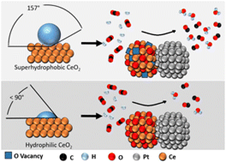 Engineering Pt–CeO2 interfaces for reverse water-gas shift (RWGS) reaction
Engineering Pt–CeO2 interfaces for reverse water-gas shift (RWGS) reaction




 Manganese dioxide (MnO2) and biomass-derived carbon-based electroactive composite materials for supercapacitor applications
Manganese dioxide (MnO2) and biomass-derived carbon-based electroactive composite materials for supercapacitor applications Miss Pranoti Patil obtained her Master of Science degree from Shivaji University Kolhapur, India, with excellent academic records. Her research works are focused on the synthesis and electrochemical testing of biomass-derived carbon, manganese dioxide, conducting polymers, and carbonaceous materials such as carbon nanotubes, graphene oxide, and reduced graphene oxide-based binary as well as ternary nanocomposites as electrode materials to be used in energy storage devices like supercapacitors and battery type supercapacitors.
Miss Pranoti Patil obtained her Master of Science degree from Shivaji University Kolhapur, India, with excellent academic records. Her research works are focused on the synthesis and electrochemical testing of biomass-derived carbon, manganese dioxide, conducting polymers, and carbonaceous materials such as carbon nanotubes, graphene oxide, and reduced graphene oxide-based binary as well as ternary nanocomposites as electrode materials to be used in energy storage devices like supercapacitors and battery type supercapacitors.
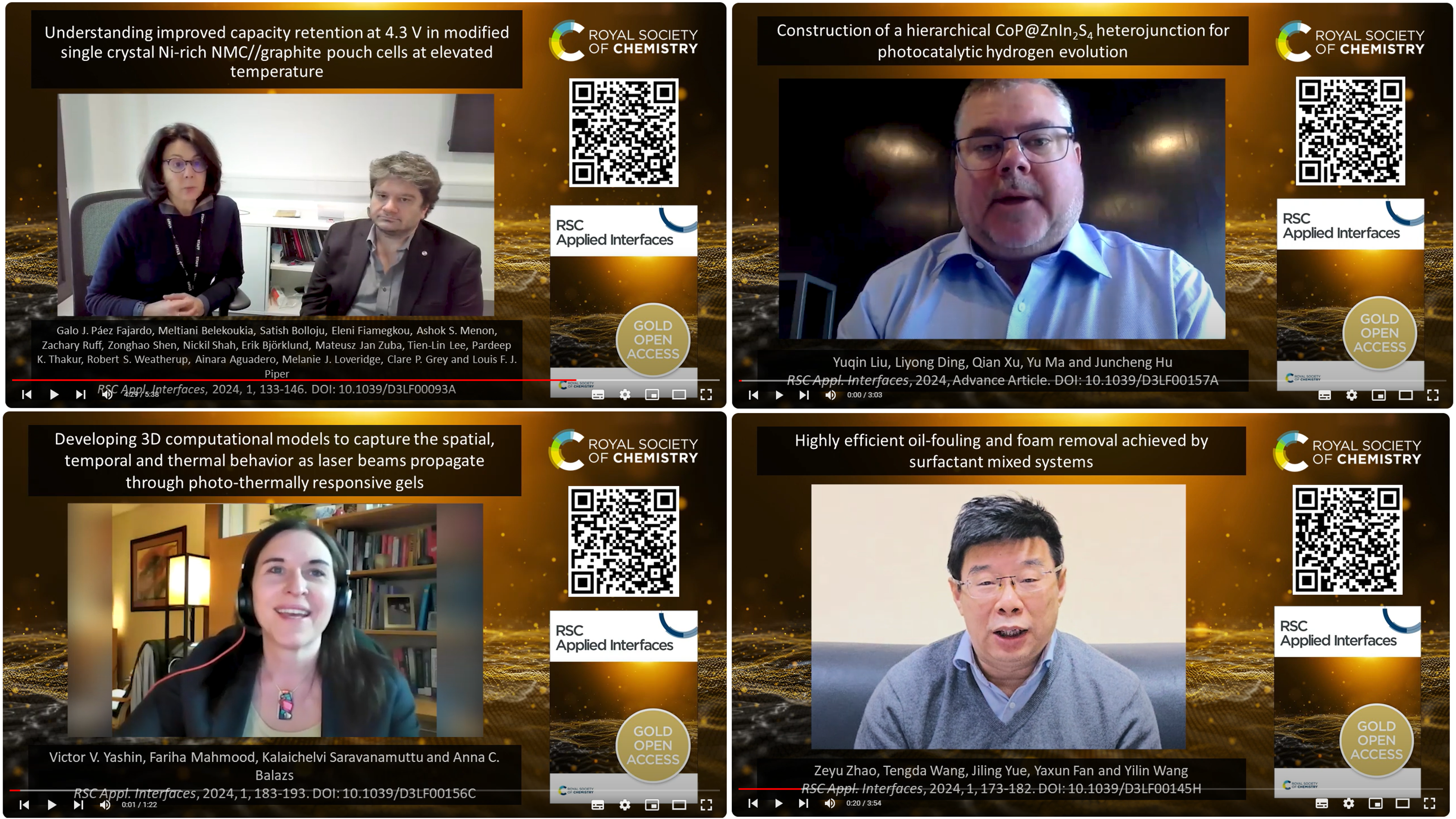






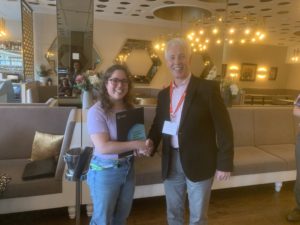









 Polyvinylpyrrolidone-mediated synthesis of ultra-stable gold nanoparticles in a nonaqueous choline chloride–urea deep eutectic solvent
Polyvinylpyrrolidone-mediated synthesis of ultra-stable gold nanoparticles in a nonaqueous choline chloride–urea deep eutectic solvent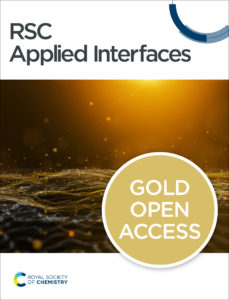 RSC Applied Interfaces
RSC Applied Interfaces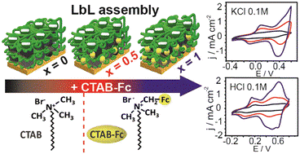 Ferrocene-labelled surfactants enhance the supercapacitor performance in PANI-PSS/nanocarbon layer-by-layer nanoarchitectonics electrodes
Ferrocene-labelled surfactants enhance the supercapacitor performance in PANI-PSS/nanocarbon layer-by-layer nanoarchitectonics electrodes